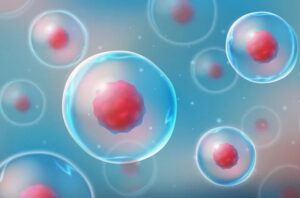Cord blood hope for bowel disease
In a groundbreaking study researchers have demonstrated the potential of human umbilical cord blood mononuclear cells (HUCB-MNCs) in treating ischemic bowel disease (ICBD).
ICBD, a group of intestinal ischemia syndromes caused by reduced blood flow, has been notoriously difficult to diagnose and treat. With mortality rates as high as 50-80% for acute cases, the need for effective treatments has been urgent.
Dr. Xiaoxiao Cai and colleagues conducted a trial involving 66 ICBD patients, comparing standard treatment with a novel approach using HUCB-MNCs
Key Findings:
1. Improved Clinical Outcomes: Patients treated with HUCB-MNCs showed significant reductions in abdominal pain, diarrhoea, and bloody stools.
2. Shorter Hospital Stays: The experimental group had an average stay of 9.55 days compared to 11.75 days for the control group.
3. Higher Effectiveness: The HUCB-MNC treatment boasted a 90.9% effectiveness rate, compared to 69.7% for standard treatment.
4. Better Long-term Results: Follow-up examinations at 1, 3, and 6 months showed sustained improvements in the HUCB-MNC group.
5. Safety: No treatment-related adverse events were reported, highlighting the safety profile of this innovative approach.
HUCB-MNCs are believed to promote blood vessel growth, reduce inflammation, and regulate the immune system.
While the results are promising, the researchers emphasize the need for larger, multi-center studies to confirm these findings. If further validated, this treatment could revolutionize the management of ICBD, offering hope to thousands of patients worldwide.
“This study opens up new possibilities for treating a condition that has long been a challenge in gastroenterology,” said Dr. Hongli Yang, a co-author of the study. “We’re cautiously optimistic about the potential of HUCB-MNCs in improving outcomes for ICBD patients.”








